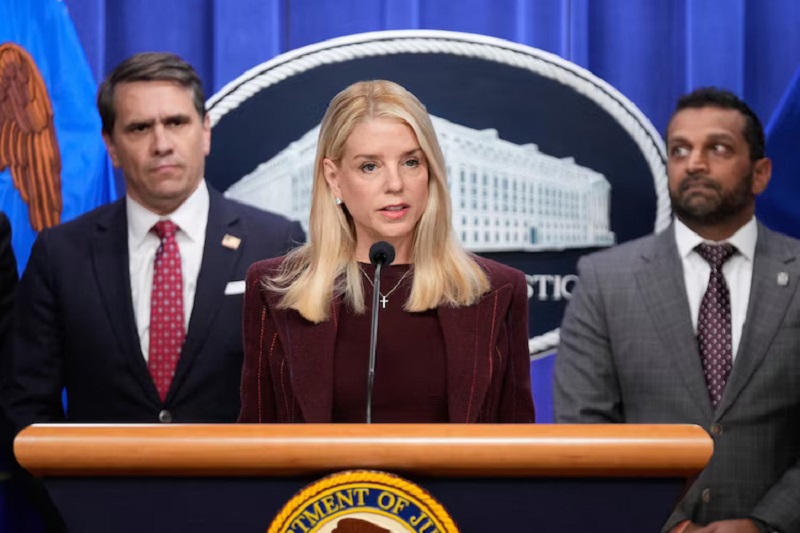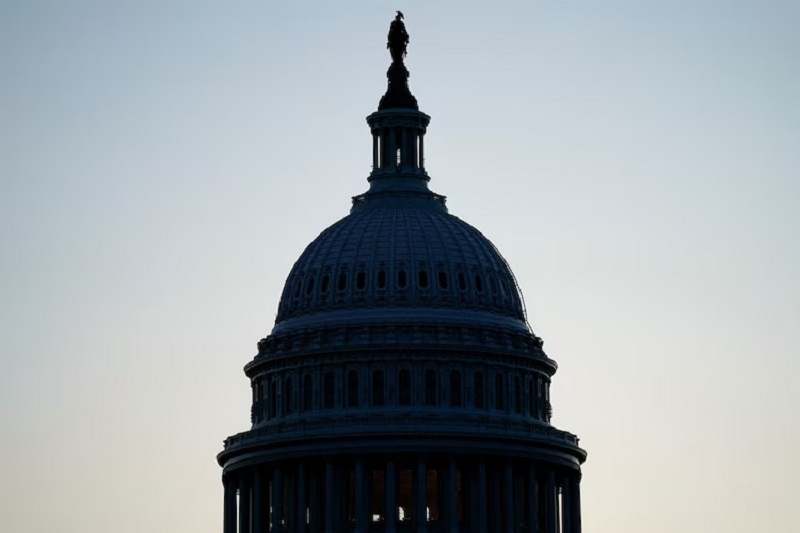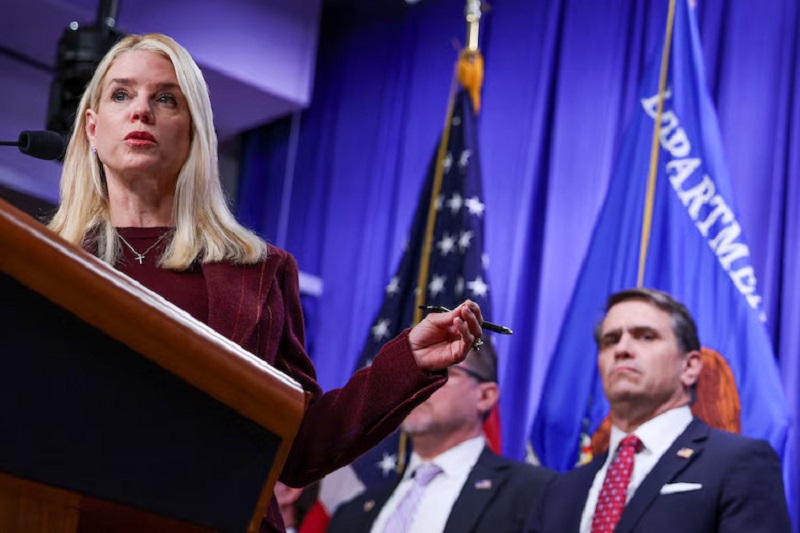Despite Congress overwhelmingly passing a bill requiring the Justice Department to release its files on convicted sex offender Jeffrey Epstein, and even if President Donald Trump signs it into law, it is unclear when -- or even whether -- the public will see those files, or how complete they might be.

Attorney General Pam Bondi speaks with reporters during a news conference at the Department of Justice, Nov. 19, 2025, in Washington, as Deputy Attorney General Todd Blanche and FBI Director Kash Patel, look on.
Mark Schiefelbein/AP
Asked Wednesday how she would respond to Congress, Attorney General Pam Bondi said, "We have released over 33,000 Epstein documents to the Hill, and we will continue to follow the law and to have maximum transparency." She spoke at an unrelated news conference alongside FBI Director Kash Patel and Deputy Attorney General Todd Blanche.
The bill includes several exceptions to a full release that could complicate or delay disclosure.
Timing
The measure says the Justice Department has up to 30 days from its signing to make "publicly available in a searchable and downloadable format all unclassified records, documents, communications, and investigative materials in the possession of the Department of Justice, including the Federal Bureau of Investigation and United States Attorneys' Offices, that relate to Jeffrey Epstein including all investigations, prosecutions, or custodial matters."

The U.S. Capitol on Capitol Hill, in Washington, D.C., November 13, 2025.
Nathan Howard/Reuters
If Trump signs the bill on Wednesday, the department would potentially have until Dec. 19 to release the Epstein investigation information.
Possible redactions, other information withheld
The Justice Department "may withhold or redact" the identities and "personal and medical files," of Epstein's victims, the bill states.
"We will continue to follow the law while protecting victims," Bondi repeated, when pressed by reporters.
"We're going to protect victims, and the law as written allows us to do that. You know, the law has carve outs to protect victims and to protect information surrounding victims, which is what we do, not only in this case, but in but in every case," Blanche added.
House Speaker Mike Johnson said he has told the president the bill does not do enough to protect victims from being identified.
The DOJ can also withhold material that "would constitute a clearly unwarranted invasion of personal privacy" or "depicts or contains child sexual abuse," according to the bill.
However, the bill does contain language that stipulates, "no record shall be withheld, delayed, or redacted on the basis of embarrassment, reputational harm, or political sensitivity, including to any government official, public figure, or foreign dignitary"
'Active' investigations
The measure also states the Attorney General may withhold or redact info that "would jeopardize an active federal investigation or ongoing prosecution, provided that such withholding is narrowly tailored and temporary."
For any materials it chooses to withhold or redact DOJ is required, within 15 days of their public release, to outline their justifications for doing so.

Attorney General Pam Bondi speaks during the announcement of a law enforcement action as Deputy Attorney General Todd Blanche listens during a press conference at the Department of Justice in Washington, November 19, 2025.
Tom Brenner/Reuters
The bill's exception regarding an "active investigation" could include the new probe of any connections top Democrats had to Epstein that Trump ordered Bondi to pursue last Friday.
Asked by ABC News Chief Justice Correspondent Pierre Thomas about her July statement that a review of the documents and the evidence at that point did not suggest that any additional investigation of third parties was warranted, Bondi responded there is "new information, additional information."
"We will continue to follow the law to investigate any leads. If there are any victims, we encourage all victims to come forward," she said, without providing any specifics, citing a pending investigation in the Southern District of New York.
When he reversed his position opposing the congressional vote on releasing the files on Sunday, Trump's post notably included qualifying language, that the House "can have whatever they are legally entitled to."
-ABC News' Alexander Mallin, Allison Pecorin, Lauren Peller and John Parkinson contributed to this report.





